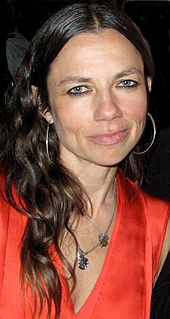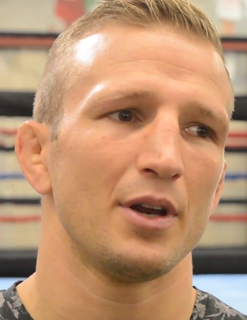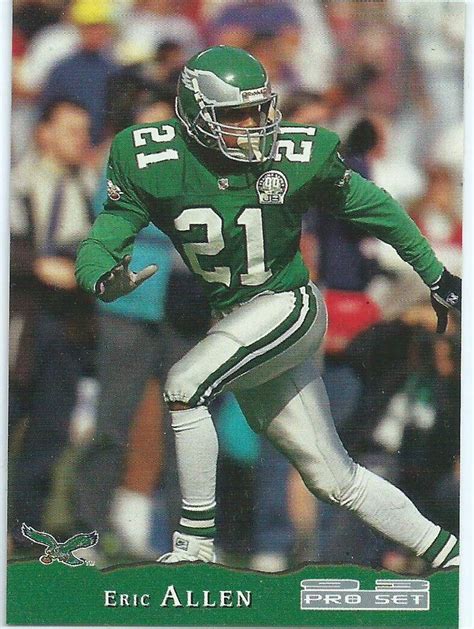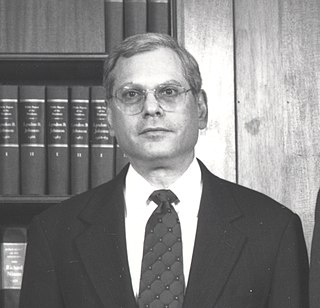Top 1200 New Information Quotes & Sayings - Page 2
Explore popular New Information quotes.
Last updated on April 19, 2025.
To be born again is, as it were, to enter upon a new existence, to have a new mind, a new heart, new views, new principles, new tastes, new affections, new likings, new dislikings, new fears, new joys, new sorrows, new love to things once hated, new hatred to things once loved, new thoughts of God, and ourselves, and the world, and the life to come, and salvation.
But the frightening aspect is that it's part of a larger effort from the Pentagon to tear down the wall between public affairs and propaganda, and essentially say there is no difference between information operations, public affairs and psychological operations. It's all one and the same. They have a new name for that too, it's called Information Engagement.
Years ago, it was easier to make new things than it is now. The weight of experience weighs heavily, and the expectations; everybody wants to see something they haven't seen before. Now, with social media, with too much information, with the speed of information - all that is making it harder and harder to realize the objective.
We believe that we live in the 'age of information,' that there has been an information 'explosion,' an information 'revolution.' While in a certain narrow sense this is the case, in many important ways just the opposite is true. We also live at a moment of deep ignorance, when vital knowledge that humans have always possessed about who we are and where we live seems beyond our reach. An Unenlightenment. An age of missing information.
I think that because of YouTube, because of MySpace, because of the digital domain that we have on the Internet, the younger generation is much more open to information. I think it's so much easier for them to gain information and trade information, and they have become more aware. In some cases, more aware than their own parents and adults, as to what's going on in the world. I find that really intriguing and interesting, and I think there is a brewing of a whole new generation of activists coming.
The Christian church has a long history of gradually absorbing scientific perspectives and new discoveries. It seems to me that, in fact, that has been one of the strengths of Christianity - it has ultimately had great flexibility in absorbing new information about the world that we get from science.
Matt Drudge's role in the Monica Lewinski scandal] strikes me as a new and graphic power of the Internet to influence mainstream journalism. And I suspect that over the next couple of years that impact will grow to the point where it will damage journalism's ability to do its job professionally, to check out information before publication, to be mindful of the necessity to publish and broadcast reliable, substantiated information.
Innovation is fostered by information gathered from new connections; from insights gained by journeys into other disciplines or places; from active, collegial networks and fluid, open boundaries. Innovation arises from ongoing circles of exchange, where information is not just accumulated or stored, but created. Knowledge is generated anew from connections that weren't there before.
Information is now a commodity that can be bought and sold, or used as a form of entertainment, or worn like a garment to enhance one's status. It comes indiscriminately, directed at no one in particular, disconnected from usefulness; we are glutted with information, drowning in information, have no control over it, don't know what to do with it.
If you share information widely, but you present that information in ways that fits your own view, you're actually still misrepresenting. So instead what you should do is figure out ways to build systems that allow people to experience and classify their information in ways that are meaningful for them.
The fact is that relatively few photographers ever master their medium. Instead they allow the medium to master them and go on an endless squirrel cage chase from new lens to new paper to new developer to new gadget, never staying with one piece of equipment long enough to learn its full capacities, becoming lost in a maze of technical information that is of little or no use since they don't know what to do with it.
I used to be skeptical when educators and technologists predicted that we may be entering a new era of oral culture, in which audible information will be at least as important as visible information. Now that I have adopted into my own daily life a device that makes music and spoken-word files easy to access from anywhere, I have tempered my skepticism.
Information wants to be free.' So goes the saying. Stewart Brand, the founder of the Whole Earth Catalog, seems to have said it first.I say that information doesn't deserve to be free.Cybernetic totalists love to think of the stuff as if it were alive and had its own ideas and ambitions. But what if information is inanimate? What if it's even less than inanimate, a mere artifact of human thought? What if only humans are real, and information is not?...Information is alienated experience.
In an information economy, entrepreneurs master the science of information in order to overcome the laws of the purely physical sciences. They can succeed because of the surprising power of the laws of information, which are conducive to human creativity. The central concept of information theory is a measure of freedom of choice. The principle of matter, on the other hand, is not liberty but limitation- it has weight and occupies space.
We have to remember that information sharing is restricted by legal barriers and cultural barriers and by the notion that information is power and therefore should be hoarded so if you share information you can extract something in exchange. In today's digital online world, those who don't share information will be isolated and left behind. We need the data of other countries to connect the dots.
Mike Flynn is a fine person, and I asked for his resignation. He respectfully gave it. He is a man who there was a certain amount of information given to Vice President Mike Pence. And I was not happy with the way that information was given. He didn't have to do that, because what he did wasn't wrong - what he did in terms of the information he saw. What was wrong was the way that other people were given that information, because that was classified information that was given illegally. That's the real problem.
Digital technologies are setting down the new grooves of how people live, how we do business, how we do everything--and they're doing it according to the expectations of foolish utopian scenarios. We want free online experiences so badly that we are happy to not be paid for information that comes from us now or ever. That sensibility also implies that the more dominant information becomes in our economy, the less most of us will be worth.
There are a lot of sources of information out there, so why don't you curate for yourself a list, like a real timeline of information, like the New York Times, or JetBlue, or your friends, or this comedian, or this guy who pretends to be a cat, or whatever it is, whatever entertains you, whatever you find useful.
A global society is coming into being, a global society that is made out of information that was not intended to be ours, but is ours, by the mistaken invention of computers and the printing press, information is power, and information has spilled by the clumsy hands of the dominator culture so that the information is everywhere, never before has the situation been so fluid, we might be able to finally have a crack at this
There have been misperceptions that we're trying to make all the information open on Facebook, and that's completely false. There are big buckets of information that we recommend that you share with only your friends privately. Then some of the more basic information, we recommend that that's visible to everyone.
There are broader and narrower definitions of the new economy. The narrow version defines the new economy in terms of two principal developments: first, an increase in the economy's maximum sustainable growth rate and, second, the spread and increasing importance of information and communications technology.
What has happened is that genetics has become a branch of information technology. It is pure information. It's digital information. It's precisely the kind of information that can be translated digit for digit, byte for byte, into any other kind of information and then translated back again. This is a major revolution. I suppose it's probably "the" major revolution in the whole history of our understanding of ourselves. It's something would have boggled the mind of Darwin, and Darwin would have loved it, I'm absolutely sure.
We hypostatize information into objects. Rearrangement of objects is change in the content of the information; the message has changed. This is a language which we have lost the ability to read. We ourselves are a part of this language; changes in us are changes in the content of the information. We ourselves are information-rich; information enters us, is processed and is then projected outward once more, now in an altered form. We are not aware that we are doing this, that in fact this is all we are doing.
If the soul is impartial in receiving information, it devotes to that information the share of critical investigation the information deserves, and its truth or untruth thus becomes clear. However, if the soul is infected with partisanship for a particular opinion or sect, it accepts without a moment's hesitation the information that is agreeable to it. Prejudice and partisanship obscure the critical faculty and preclude critical investigation. The results is that falsehoods are accepted and transmitted.
Everyone wants to make good decisions. But how do you know when you are being guided by the Eck (Holy Spirit) or the mind. If guided by the Eck (Holy Spirit), you are more likely to change your mind when new information comes along. You're quicker to admit that an earlier decision based on sketchy information needs to change.
In the case of health information, I spent twenty-five years practicing medicine, and I was all too familiar with the fact that information wasn't properly shared, so I wouldn't know exactly what was in the hospital records; patients would be lost. Computerization gives the opportunity to actually get the information much better.


























































